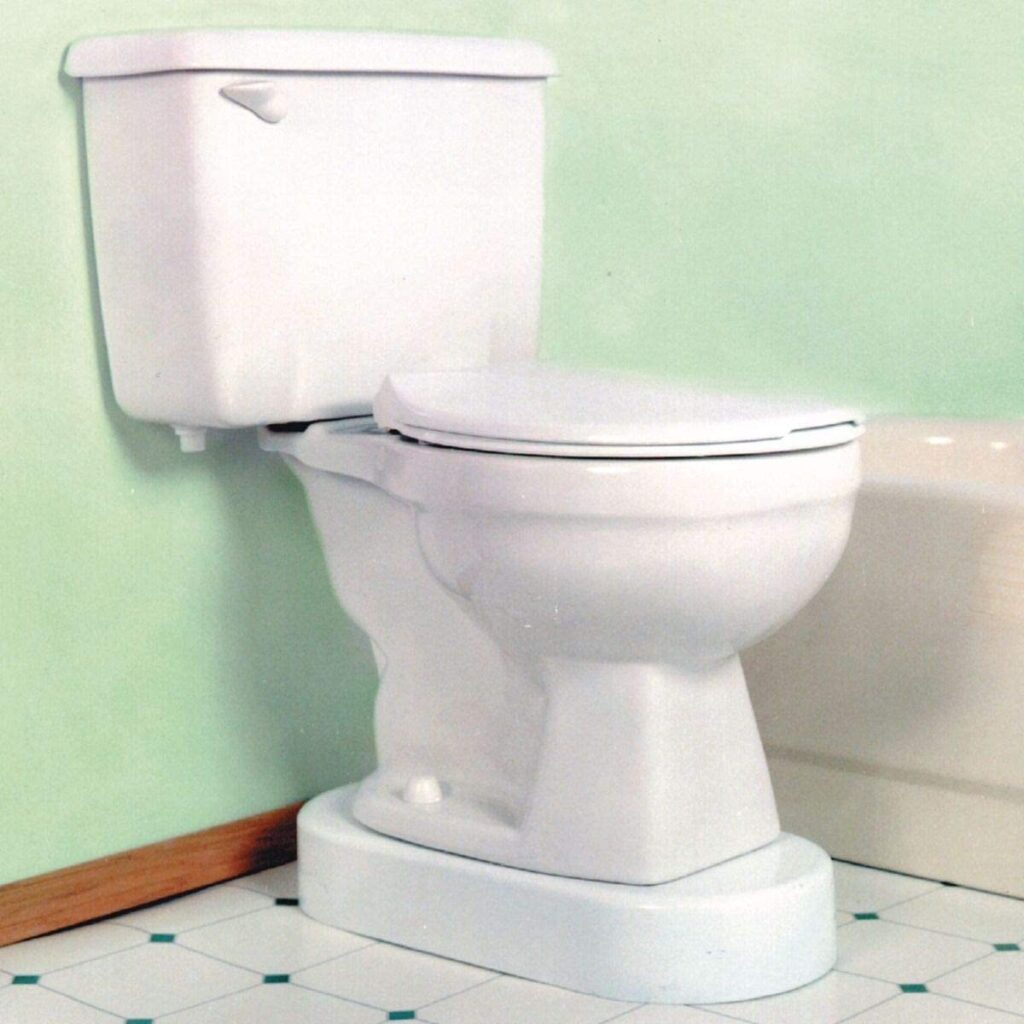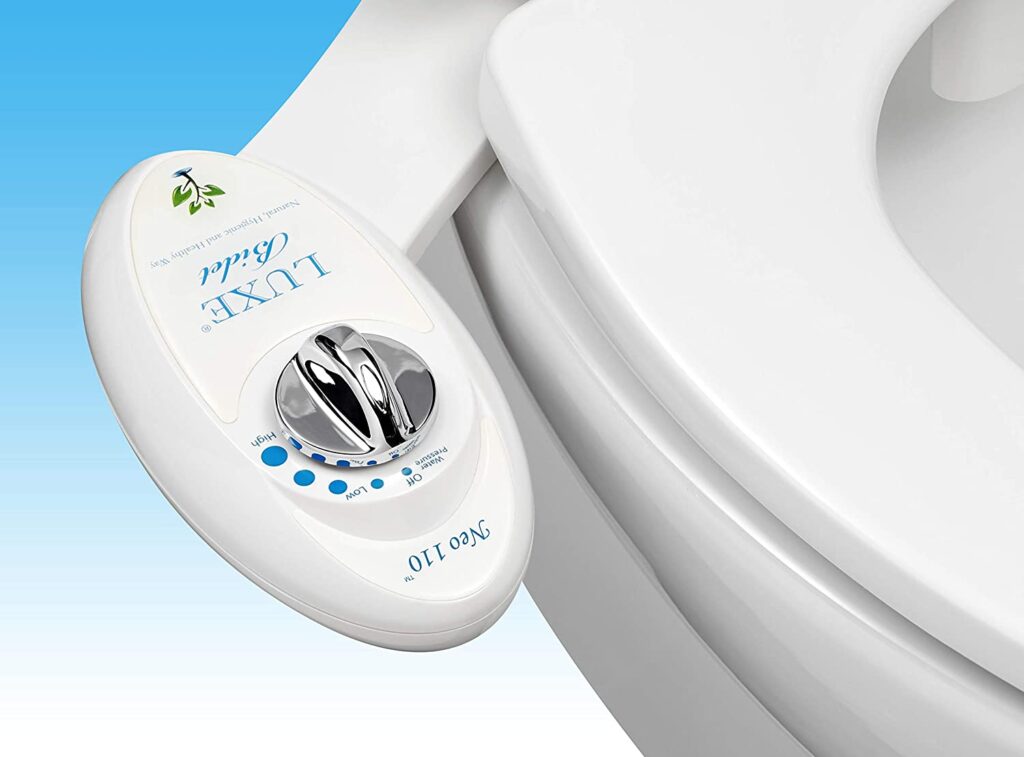Hearing running water coming from your bathroom walls can be pretty confusing and even a little freaky. It’s a sound that a lot of homeowners deal with at some point, and it can leave you wondering if there’s something wrong with your plumbing. While it’s easy to jump to conclusions and think there’s a leak or hidden water problem, not all of these noises are as serious as they might sound.
In this article, we’ll walk you through the possible reasons for this strange noise, share some simple fixes, and help you know when it’s time to call a plumber. Whether it’s something with your pipes, water pressure, or another hidden issue, we’ll give you the information you need to figure it out. So, if you’ve been wondering, “Why do my bathroom walls sound like running water?”—we’ve got the answers for you.
Table of Contents
1. Understanding the Problem
If your bathroom walls start making sounds like running water, it can be pretty confusing. The noise might sound like a soft trickle or even a steady flow. It’s especially strange if you can’t tell if it’s something normal or if there’s a problem behind the walls. Sometimes, the sound is quiet and only noticeable when the room is silent, but other times, it’s louder and hard to ignore.
Not every noise in your home means there’s an issue. For example, pipes in the walls can make sounds when water is flowing through them, and that’s usually no big deal. But if the noise gets louder or happens at odd times—like when no one’s using the water—it’s a good idea to check it out.
The sound can also come and go. Some people hear it just now and then, while others might notice it all the time. Paying attention to when you hear it and how loud it is can help you figure out what’s going on. It might happen right after you use the shower, flush the toilet, or even randomly at other times. Noticing when it happens can help you decide if it’s a small issue or something that needs more attention.
2. Common Causes of Running Water Sounds in Bathroom Walls
There are a few reasons why you might hear running water sounds coming from your bathroom walls. Let’s take a look at some of the most common causes, from plumbing problems to everyday systems in your home.
A. Plumbing Issues
Leaky Pipes: One of the most common reasons for hearing running water in the walls is a leaky pipe. Even a tiny leak can make water drip, creating a sound like running water. This can happen with both hot and cold pipes. Sometimes, the leak is so small that the sound is hard to notice but still enough to be annoying. If you leave a leak unchecked, it can lead to serious water damage and higher water bills, so it’s a good idea to fix it as soon as you can.
High Water Pressure: If your home’s water pressure is too high, it can cause the pipes to vibrate or “rattle,” which can sound like running water. When water moves through pipes under too much pressure, the pipes might shake, especially if they aren’t tightly secured in the walls. This can cause strange noises, even when no water is being used. A water pressure regulator can help by lowering the pressure to a safer, more manageable level.
Water Hammer: Water hammer happens when the flow of water is suddenly stopped, causing the pipes to bang or thump. Although this usually creates a thumping sound, it can sometimes be mistaken for running water. This happens when plumbing valves close quickly, sending a shockwave through the pipes. If this is the cause, you’ll hear thudding or banging sounds, rather than a steady running noise.
B. Toilet Tank Refilling
The sound of water filling the toilet tank can also be mistaken for running water. After you flush, water flows into the tank through the supply line to refill it. This noise can travel through the walls, especially if the plumbing is near or inside the wall. The sound of water filling the tank can sometimes sound like running water, and it may be more noticeable if there’s a small issue with the water valve or if the toilet runs for longer than usual.
C. HVAC or Water Heating Systems
Heating systems and water heaters can also cause noises in your walls. If you have a system that uses hot water for heating—like radiant floor heating or a boiler—this can create air pockets or vibrations as the hot water moves through the pipes, making a noise that sounds like running water. Similarly, water heaters can sometimes make a gurgling or trickling noise, which can be heard through the plumbing in the walls.
D. Ventilation Issues
Poor ventilation in your bathroom can sometimes cause excess moisture to build up inside the walls. This moisture can trickle down the pipes and create a sound that sounds like running water. If your bathroom doesn’t have a good exhaust fan or enough airflow, moisture can get trapped, leading to that “running water” feeling. Installing a fan or improving ventilation could help fix this problem.
3. How to Identify the Cause
Once you start hearing the sound of running water, it’s time to figure out what’s causing it. Here are some simple steps to help you track down the source:
A. Inspect Visible Plumbing
Start by checking any visible plumbing in your bathroom. Look under the sink, around the shower, and near the toilet. Even a small leak can sometimes be easy to miss, but it could still be the culprit behind the sound. If you see wet spots or any discoloration along the pipes, it might mean there’s a leak behind the wall. Checking the plumbing is the first step to figuring out what’s going on.
B. Check Water Pressure
You can easily check your home’s water pressure using a water pressure gauge. These are pretty inexpensive and can be found at most hardware stores. To check, just attach the gauge to an outdoor faucet or hose bib, then turn on the water. If the pressure is over 60-70 psi, you might have too much pressure in your system. Installing a pressure regulator can help lower the pressure, reducing any vibrations and stopping that running water sound.
C. Listen for Specific Sounds
Take a close listen to the type of sound you’re hearing. If it’s a steady trickling or running sound, it could be a leaky pipe or something going on with the toilet tank refilling. If you hear thumping or banging, that could be water hammer. To figure it out, pay attention to when the sound happens. Does it occur after you flush the toilet, or does it show up when no one is using water? If it’s a random or intermittent sound tied to water usage, it’s likely related to your plumbing.
4. Potential Solutions to Fix the Problem
Once you’ve figured out what’s causing the running water sound in your bathroom walls, it’s time to take action. Most of these issues can be solved with some straightforward fixes, but in some cases, you might need a professional to lend a hand.
A. Fixing Leaky Pipes
If the sound is coming from a leaky pipe behind the wall, the first thing you’ll need to do is find the leak. This can be tricky because sometimes leaks aren’t visible right away. Start by looking for any wet spots or water stains on the wall or ceiling, especially around places like sinks or showers.
To fix the leak, you might need to cut into the drywall to get to the pipes. If you’re comfortable doing DIY work, you can try sealing the leak with pipe repair tape or a pipe clamp. For bigger leaks, it’s best to replace the damaged pipe section. If you’re not sure how to do this, or if the leak is in a hard-to-reach spot, it’s probably time to call in a professional plumber. Leaky pipes can cause water damage, mold, and sky-high water bills, so it’s important to fix them quickly.
B. Adjusting Water Pressure
Too much water pressure is another common cause of those running water sounds. When pressure is too high, pipes can start vibrating, and you might hear that noise through your walls. The good news is, adjusting water pressure is pretty simple.
You can start by checking your water pressure with a gauge, which you can find at most hardware stores. If the pressure is over 60-70 psi, that might be the problem. To fix it, you can install a water pressure regulator on the main water line, which will help lower the pressure and stop those vibrations. If you’re not sure how to do it yourself, a plumber can help make sure it’s done right.
C. Install Water Hammer Arrestors
If you’re hearing a loud thumping or banging sound, the issue might be water hammer. This happens when water flow is suddenly stopped—usually because a valve closes too quickly. The pressure shockwave causes the pipes to bang around, and it can sometimes sound like running water. The fix here is to install water hammer arrestors, which absorb the shock and stop the noise.
Water hammer arrestors are installed near valves, like at the end of supply lines to appliances or fixtures. If you’re handy, you can install them yourself, but if you’re unsure, a plumber can make sure they’re set up properly to get the best results.
D. Check the Toilet Tank
If the sound is tied to your toilet, it’s a good idea to check the tank and make sure it’s working right. A toilet that runs constantly or takes a long time to refill can make the running water sound carry through the walls. Check the flapper inside the tank—if it’s worn out or doesn’t seal properly, it can cause water to leak into the bowl, making the tank refill longer than necessary.
You can also adjust the water level in the tank by tweaking the float valve. If you’re not sure how to do this or if the problem doesn’t go away, it might be time to replace the flapper or call a plumber to take a look and fix the issue.
E. Ventilation Improvements
Sometimes, the sound of running water is actually caused by condensation inside the walls, which happens if there’s not enough ventilation in your bathroom. Improving airflow can help reduce moisture buildup and might get rid of the sound.
If you don’t have an exhaust fan, consider installing one. It’ll help remove excess moisture from the air and keep condensation from building up on the pipes and walls. If you already have a fan, make sure it’s working well and that it’s the right size for your bathroom. Better ventilation won’t just help with the sound, it’ll also prevent mold and mildew from growing.
5. When to Call a Professional
While a lot of these issues can be handled with simple DIY fixes, there are times when it’s better to call in a professional plumber or home repair expert. If you’ve tried fixing the problem yourself but the sound keeps coming back, it could mean there’s a more complicated plumbing issue that needs a pro.
For example, big or ongoing leaks, or plumbing problems hidden behind walls or in tough-to-reach spots, should be left to an expert. The same goes for serious water pressure issues, replacing large sections of pipe, or installing things like water hammer arrestors. It’s always a good idea to call a professional to make sure the job gets done right.
If you’re not sure what’s causing the sound or how to fix it, don’t hesitate to reach out. Sometimes getting a pro’s opinion can save you from bigger problems and more expensive repairs down the line.
Conclusion
The sound of running water in your bathroom walls can happen for a few different reasons, like leaking pipes, water hammer, or poor ventilation. The good news is that most of these issues can be fixed with simple fixes like adjusting water pressure, repairing leaks, or installing a water hammer arrestor.
By paying attention to the signs and keeping up with your plumbing and bathroom maintenance, you can prevent these problems from getting worse. But if you’re ever unsure about what’s causing the sound or how to fix it, calling in a professional plumber is always a good idea. They can quickly figure out what’s wrong and get everything back to normal.
If you’re not sure what the problem is, don’t stress—calling in a plumber will give you peace of mind.
FAQ – Bathroom Walls Sounding Like Running Water
-
Why do my bathroom walls sound like running water when no water is running?
This could be from a few different things, like leaks in your pipes, high water pressure, or issues with your toilet tank refilling. Sometimes, air pockets or vibrations in the pipes, especially if the pressure is too high, can cause this sound. Checking your visible plumbing and water pressure can help you figure out what’s going on. -
Can a leaking pipe behind the wall cause this noise?
Yep, definitely. A leaking pipe can create a dripping sound that sounds like running water. Water can leak out of the pipes and travel through the wall, making it seem like there’s water flowing all the time. If you think there’s a leak, it’s best to call a plumber to check and fix it ASAP before it leads to water damage. -
How can I fix high water pressure causing the running water sound?
If high water pressure is the issue, you can install a water pressure regulator. This will control how much pressure is coming into your home and keep it within the ideal range of 60-70 psi. A plumber can help you install one if you’re not sure how to do it yourself. -
What is water hammer, and can it cause this noise?
Water hammer is that loud banging sound you hear when water flow is suddenly stopped, like when a valve closes quickly. This shockwave of pressure can make the pipes vibrate or bang, which can sometimes sound like running water. The fix for this is installing water hammer arrestors, which absorb the shock and stop the noise. -
Could poor ventilation be causing the sound of running water?
Yes, if there’s not enough ventilation in your bathroom, moisture can build up inside the walls. This can cause condensation to trickle down the pipes, which might sound like running water. Installing an exhaust fan or improving your bathroom’s ventilation can help fix this problem and reduce moisture, preventing mold growth. -
When should I call a plumber for this issue?
If you’ve tried fixing it on your own and the sound still won’t go away, or if you have a big leak, major water pressure issues, or plumbing problems you can’t reach, it’s time to call a professional. Plumbers have the right tools and know-how to solve the problem fast and save you from water damage or bigger repairs down the line. -
Can I fix these issues myself, or do I need a professional?
Some things, like adjusting water pressure or checking your toilet tank, are easy DIY fixes. But if you suspect a big leak or a tricky plumbing issue, it’s best to call in a plumber. They’ll be able to check everything out and make sure it’s done safely and properly.






